

I’ve been using Goodreads to keep track of books for a while, and I recently realized that it would be great to use a similar system for games—to monitor what I’d played, what I wanted to play in the future, and get recommendations on what I should play next. I set out to track down a “Goodreads for video games,” and this is what I found.
A quick note: this article doesn’t include sites that are generally considered to be social networks for gamers, like gamerDNA, and Raptr. While those can be used for the same purpose, I was looking for sites that had a stronger focus on tracking your games than on having conversations with other gamers.
I found Grouvee to be the most Goodreads-like of all of the services reviewed in this article. It has a good-looking, simple interface, and provides the functionality you need.
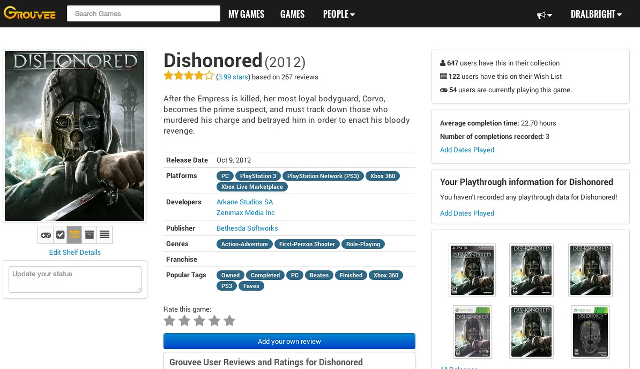
Each video game entry contains the average rating from Grouvee users, a quick summary of the game, release date, platforms, publisher, and other useful information. You can assign a status to any game: played, playing, wishlist, backlog, and “other shelf.” This last option lets you create as many shelves as you’d like to further organize your games. You can also select which system(s) you played the game on to add more detail to your records; you can even select multiple platforms in case you’ve played it a few different ways.
You can add a status to each game; this lets you leave comments throughout your playthrough (or whenever you want) about your feelings about it, how far you are, or whatever else you might want to share. You’re also given the option to record information about your playthrough(s) of the game, like when you started it, when you finished it, the level of completion you achieved, and how much time you spent finishing the game.
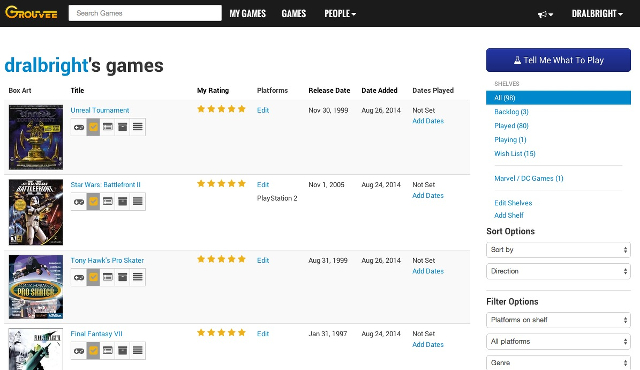
Grouvee also allows you to add friends so you can see what others are playing and what they thought of different games. It’s integrated with Facebook, so you can see if any of your friends have Grouvee accounts, and invite them if they don’t.
One of my favorite parts of Grouvee is that it allows you to browse through its entire catalog of games. If you want an exhaustive list of games that you’ve played (or to reminisce about some that you totally forgot), this is a fantastic feature. There’s no way that I would have remembered to add Killer Instinct or F-Zero if it wasn’t for this capability.
This site is billed as an online gaming journal with some social capabilities—and while it lacks some of the functionality that I like on Grouvee, it has a great user interface and provides a more social experience. Social sharing is built into the site; you can easily share links, comments, and status updates from any page to keep your friends updated on what you’re playing. There’s no Facebook integration yet, so you’ll have to find people that are already on dpadd through the People tab.
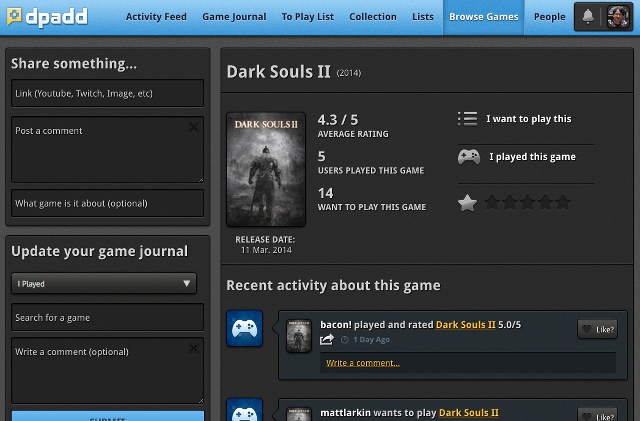
Adding a game from the sidebar isn’t quite as simple as Grouvee, as you can’t look at the details of the game; you have to just add it. You can presumably add games from the Browse Games tab, but the search always resulted in an error when I was using it [Update: one of the dpadd guys emailed to tell me that the bug has now been fixed; search away!]. “Browse Games” is much more limited than Grouvee’s browsing; you can see the most played, most wanted, and most reviewed games this week, as well as the most recent rated and played games, which is nice, but there’s no mass-browsing capability.
Of course, you can rate games and see what the average rating is, which could help you pick your next game, and you can leave comments in your Game Journal that your friends and followers will see.
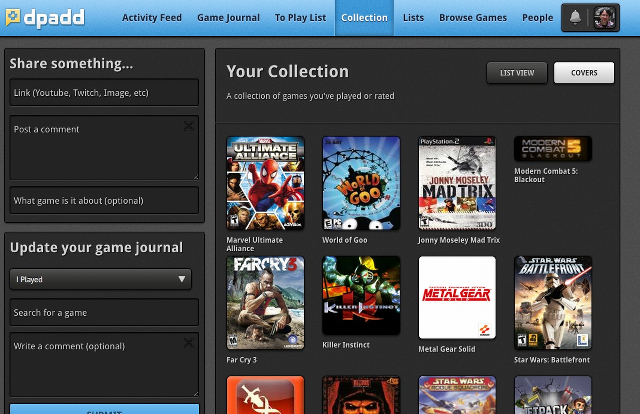
Lists are also available on dpadd, which is a really great feature; you can make a list of your favorites, a genre list, a list of games that address a particular topic or theme, or anything else you want. Browsing through other people’s list is a great way to find new games that you’re interested in. It can be tough to find lists—you can only see the most recent ones created and recent ones by specific users on their pages—but it’s still a good feature.
Because there’s a tool for integrating it with Steam, Backloggery made it onto our list of 6 useful tools for getting more out of Steam. It’s quite a bit simpler than the other options on the list, but it still works to catalog your video games.
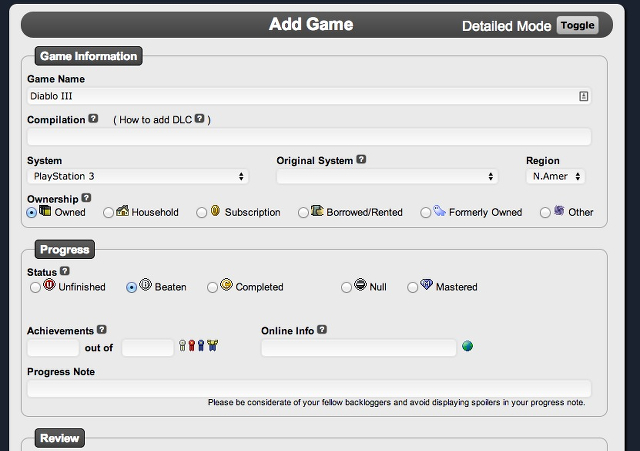
The biggest difference between Backloggery and the other systems is that it doesn’t provide integration with a video game database. Instead of adding specific game entries to your account, you’re presented with a number of blank fields; you can fill in the name, system, and region of the game before adding its status, ownership status, and review information. You can keep track of how many achievements you’ve earned, whether you’re currently playing the game, and whether or not it’s on your wishlist.
Although this provides some flexibility to manage your games however you’d like—or if you want to add obscure games or games that you’ve created— it just doesn’t provide as good of an experience as the other sites. There are no cover images or average reviews; this site does provide some social capabilities, but they’re not as useful as the ones you can get elsewhere.
If you’re still using Steam and integration is crucial, Backloggery is great. If not, it’s probably best passed over.
While all of the three options above work well for keeping track of your games, both completed and yet-to-be-started, I found Grouvee to provide the best overall experience. The ease of browsing games, the simple interface, the ability to create custom shelves, and the general ease of using the site all contribute to this being my choice for keeping a gaming log. Unfortunately, the recommendation engine only chooses from games on a particular shelf, which is disappointing, but I’m hoping for this to be expanded in the future.
Have you used any of these sites for managing your game shelf? Which ones did I miss? What’s your favorite way to manage your backlog and keep track of the games you’ve played? Share your thoughts below!
Image Credits: Hillary Via Flickr

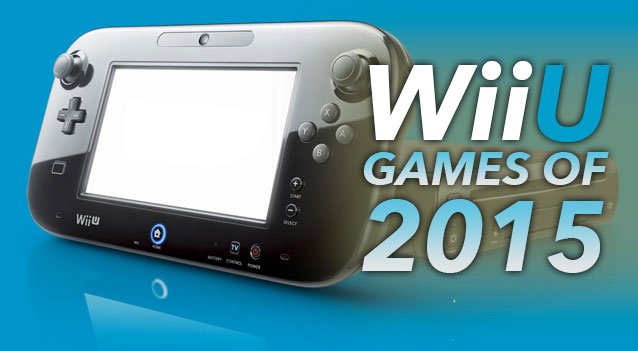
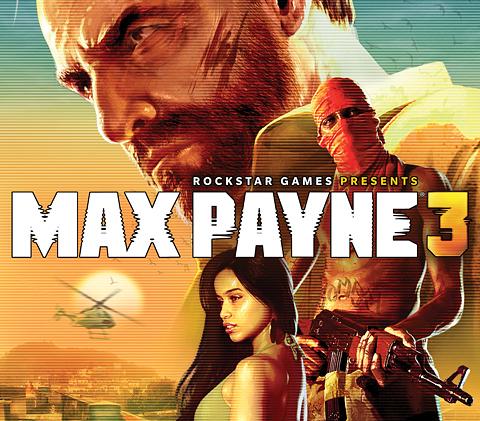
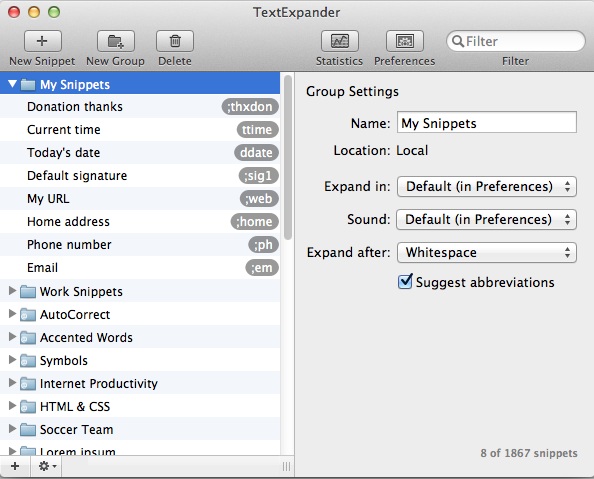
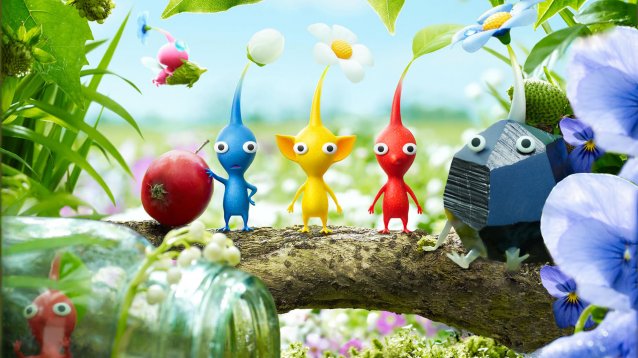 Pikmin 3 Glitches Guide
Pikmin 3 Glitches Guide Skyrims Falmer: Snow Prince and the Beast
Skyrims Falmer: Snow Prince and the Beast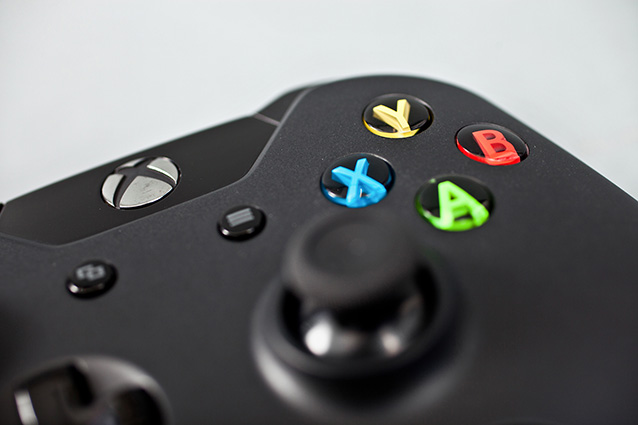 Xbox One is Secretly an All Digital Console
Xbox One is Secretly an All Digital Console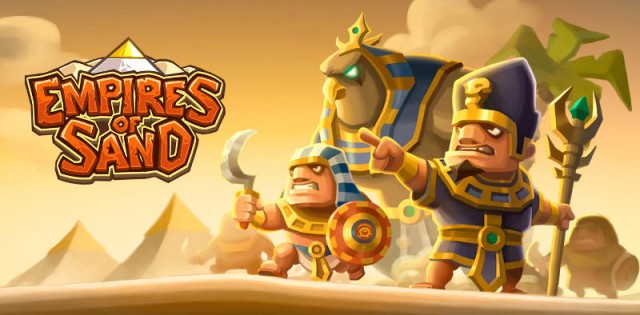 Empires of Sand: Complete Cheats and Tips Guide
Empires of Sand: Complete Cheats and Tips Guide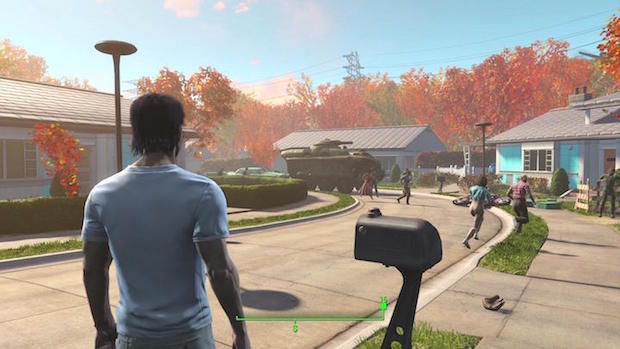 Fallout 4 Guide: How to Find Hazmat Suit and Be Radiation Proof
Fallout 4 Guide: How to Find Hazmat Suit and Be Radiation Proof